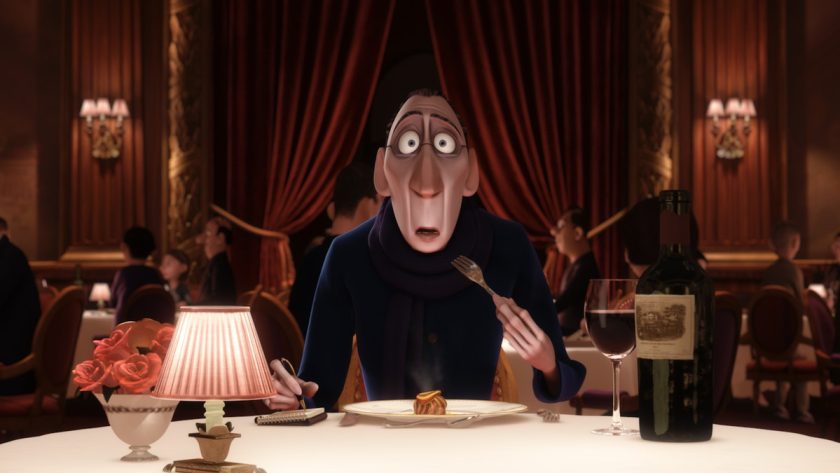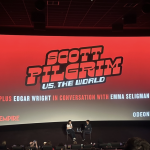In many ways, the work of a critic is easy. We risk very little yet enjoy a position over those who offer up their work and their selves to our judgement. We thrive on negative criticism, which is fun to write and to read. But the bitter truth we critics must face, is that in the grand scheme of things, the average piece of junk is probably more meaningful than our criticism designating it so.
~ Anton Ego, Ratatouille (2007)
The notion of the critic as a sadistic killjoy may be encapsulated in Ratatouille’s Anton Ego—his last name is indeed far from subtle—but it is by far not the first of such depictions nor the most accusatory. When John Keats died of tuberculosis, Byron described him somewhat patronisingly as ‘kill’d off by one critique’. Pixar’s Gusteau, whose life was snuffed along with his third Michelin star, arguably faced the same fate. For those who view art as a matter of life and death, critics are often cast and condemned as the executioners. For the less obsessed, critics are relegated to redundancy. Lanthimos boys and Coppola girls linguistically masturbating on the internet, called out in text posts foregrounded over the Trevi Fountain— ‘Men used to build stuff like this, and now they’re on Letterboxd.’ For the record, I love a funny Letterbox one-liner. Still, ‘talking about film’ can certainly be a shorthand for ‘being an arsehole.’
So why do we do it? And more importantly, why should we continue?
Picture the scene: you’ve just watched a film. You stroll out of the cinema. It’s dark (it works better when it’s dark), and you get this feeling that whatever it is that you have just spent an hour and a half sitting silently staring at on a flickering screen has changed your life in some intangible but inestimably important way. Such a scene, such a feeling, is rare. But it is, I believe, what keeps us coming back to film and what keeps us talking long after the closing credits. Criticism can be the attempt to materialise this feeling outside of the dark room, to explain our experiences as a way of keeping them alive—good, bad or otherwise– a way of sharing them.
The best artists may ‘bring the world to Kansas.’ The best critics bring a world: their own. What else can be done? Opinion is autobiography, ‘the record of one’s own soul,’ as Oscar Wilde defined it. Such an act of recording betrays not only a love of the medium, which if not a silent endeavour is certainly an interior one, but a love of connection. A review inevitably says, ‘Here is what happened. This is what I thought. That is who I am,’ and, in doing so, asks, ‘What did you think? Who are you? Who do you think I am?’
The real kicker is that this is impossible. How could we ever use words to adequately convey what is made to be seen or heard or tasted? To pin down an experience dependent on mood, environment, time of day into a pile of neat phrases? To carve an opinion into stone? Reviews are as flimsy as tissue paper. Take Anton Ego. He may eventually soften, disregard a penchant for biting critique for the charmingly cheesy pun, ‘hungry for more,’ and advocate for a rat-run restaurant. But will his readers taste ratatouille through his word choices? No. If they eat at this restaurant, will they also be transported to his childhood through a series of warmly lit vignettes? Certainly not. Subjective as it is, no art— no food, no film-– will ever be portrayed perfectly by a paragraph. No experience will ever be had the same way twice, not even by the same person. Opinions will change like everything else. And yet… that experience did happen once. It matters.
Films become dictionaries of feeling, catalogues of emotional shades, not to be silently admired but to be sounded out, painted with, in a bid to better understand one another. Love is a general term which might encompass the handshake in The Holdovers, a churro in Challengers, the cut in Past Lives or the moment the opening chords of Elliott Smith’s ‘Say Yes’ begin to play in Good Will Hunting. When we reach for the particular and our vocabularies fail us, we can point to the specificities of each scene to continue our conversations. What a relief it is to watch a film and find in it a feeling you thought made you, well, odd. What a relief it is to read a review and find you were not the only person relieved.
And if films have the potential to contain all that, why not take them to task when you feel they have failed? Disappointment denotes care, not callousness. Dichotomies of positive and negative, funny and cruel do not hold up in the movies. You can respect the work that goes into all films and still make a punchline out of a clumsy line delivery. I don’t believe praise is made meaningful by rarity as long as honesty remains the crucial ingredient.
Ego is right. In many ways, the work of a critic can be easy. It can be easy to speak about something you are passionate about. To speak and to listen and to think, to decide, to laugh, to persuade, to risk misjudgement, to have your mind changed. We talk about films because we care about films. We talk about films because we care about each other. And somewhere in all of that, meaning finds itself a home.
This year, I hope you may find a home in our journal as well– a place for us to talk, a place for us to listen. There is much to look forward to!




